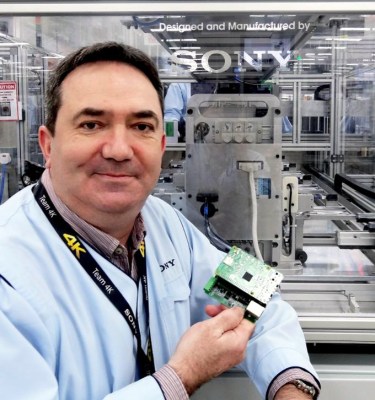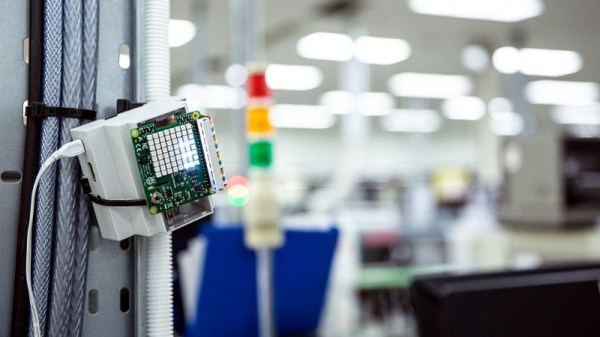Not that it’s something the average Hackaday reader is unaware of, but the Raspberry Pi is a rather popular device. While we don’t have hard numbers to back it up (extra credit for anyone who wishes to crunch the numbers), it certainly seems a day doesn’t go by that there isn’t a Raspberry Pi story on the front page. But given that a small, cheap, relatively powerful, Linux computer was something the hacking community had dreamed of for years, it’s hardly surprising.
 But how popular is the Raspberry Pi among people who don’t necessarily spend their free time reading weird black-background websites? Well, according to a recent article in Forbes, the Pi has been spotted putting in an honest days work all over the world. From factories to garbage trucks, everyone’s favorite Linux computer has come a long a way from its humble beginnings. How does it feel knowing a $35 computer has a longer resume than you do?
But how popular is the Raspberry Pi among people who don’t necessarily spend their free time reading weird black-background websites? Well, according to a recent article in Forbes, the Pi has been spotted putting in an honest days work all over the world. From factories to garbage trucks, everyone’s favorite Linux computer has come a long a way from its humble beginnings. How does it feel knowing a $35 computer has a longer resume than you do?
Unfortunately, the Forbes article doesn’t have the sort of deep technical details we’re used to around these parts. The fact that the article opens by describing the Raspberry Pi as a “stripped-down circuit board covered with metal pins and squares” should tell you all you need to know about the overlap between Forbes and Hackaday readers, but we think author [Parmy Olson] still tells an story interesting regardless.
So where has the Pi been seen punching a clock? At Sony, for a start. The consumer electronics giant has been installing Pis in several of their factories to monitor various pieces of equipment. They record everything from temperature to vibration and send that to a centralized server using an in-house developed protocol. Some of the Pis are even equipped with cameras which feed into computer vision systems to keep an eye out for anything unusual.
[Parmy] also describes how the Raspberry Pi is being used in Africa to monitor the level of trash inside of garbage bins and automatically dispatch a truck to come pick it up for collection. In Europe, they’re being used to monitor the health of fueling stations for hydrogen powered vehicles. All over the world, businesses are realizing they can build their own monitoring systems for as little as 1/10th the cost of turn-key systems; with managers occasionally paying for the diminutive Linux computers out of their own pocket.
The impact the Pi has had on the hardware world is difficult to overstate. It’s redefined the status quo for single board computers, and with the platform continuing to evolve, there’s no sign its incredible journey is slowing down anytime soon.
[Thanks to Itay for the tip.]












